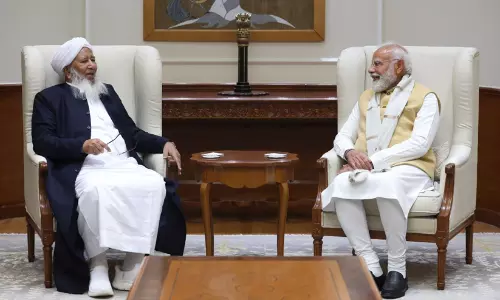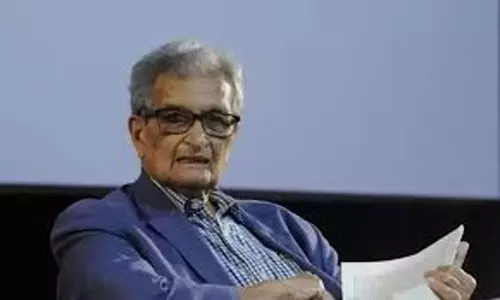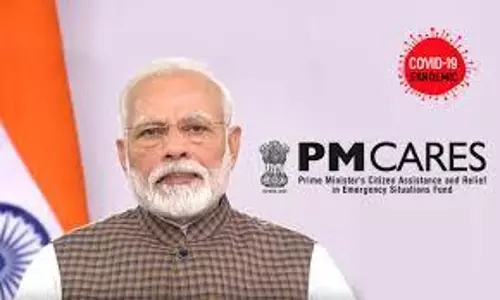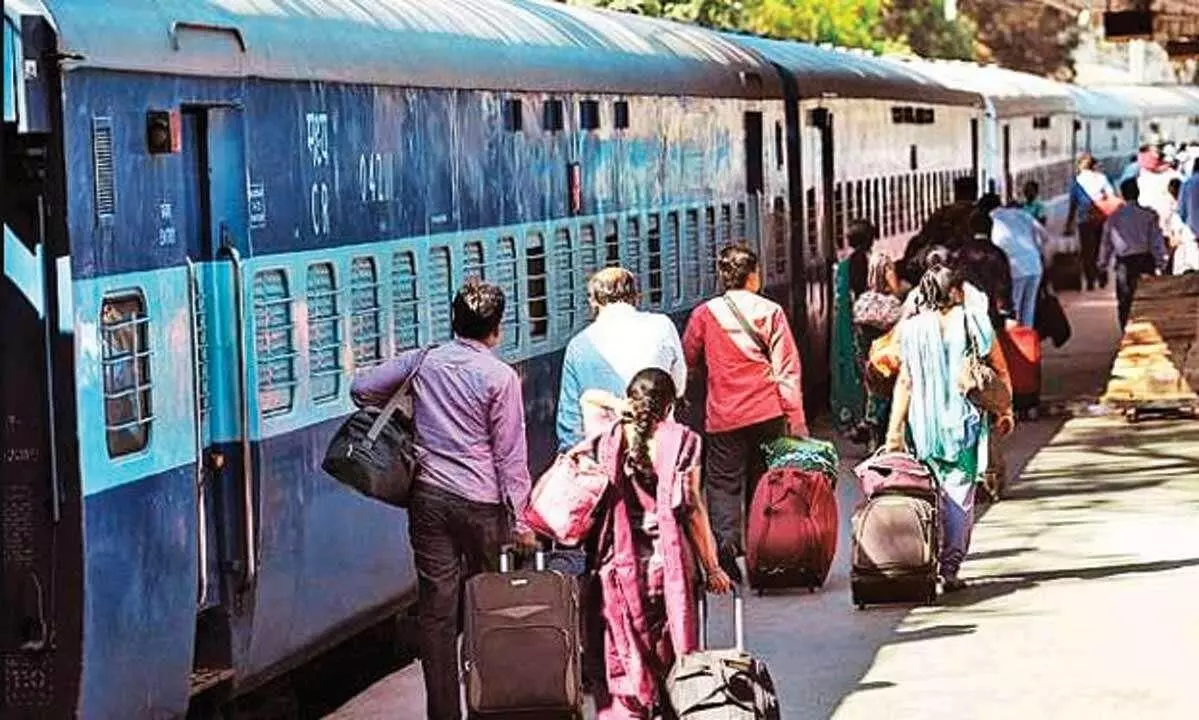
Suffocating travel woes of Kerala
text_fieldsCan there be a permanent solution to Kerala's travel woes? Our leaders have been saying for a long time that they have been trying to solve the problem. But the solutions introduced with great pomp, are finally found to be only contributing to the challenges of travel. When the Vande Bharat trains debuted in Kerala, there was sheer excitement of reaching Thiruvananthapuram or Kasaragod in no time. Now Vande Bharat trains run on time adhering to their schedules. But for that, the schedules of all the other trains have been derailed. Rescheduling or delaying the timings of the trains running through the Malabar region for the smooth operation of Vande Bharat trains has made commuting to workplaces and educational institutions difficult. The tendency to halt the trains along the Ernakulam-Kayamkulam route, which is a single lane, is also very high. The railway authorities should keep in mind that the passengers travelling in ordinary trains, who get affected by the delays caused by the Vande Bharat schedules, also deserve the same punctuality and efficiency in service as Vande Bharat trains offer. This, especially, when thousands of ordinary people rely on such trains on a daily basis as means of transport to make a livelihood. Halting the other trains for a long duration and delaying their timings for the smooth functioning of the 'special' Vande Bharat trains is discrimination and a violation of human rights. The state government and people's representatives should urgently come forward to rectify it.
It’s not only Vande Bharat trains that contribute to the challenges of train travel in Kerala. Certain biased approaches of the Central government also play a role in this. General compartments in many long-distance trains have been reduced from four to two. The number of coaches in many trains running through Kerala has also been trimmed. The facilities in long-distance sleeper coaches during daytime journeys have also been cancelled post-Covid. The latest decision of the railways is to increase the number of AC coaches by reducing the number of non-AC sleeper coaches in long-distance trains. To add to the inconvenience, many passenger trains are now run as Express trains. The authorities are not even thinking about the ordinary passengers, who have to pay for all such 'reforms'. . Last Saturday, two women were injured in a rush to board the Parasuram Express in Kozhikode. A couple of people even fell onto the railway tracks. There were also instances of passengers getting suffocated and fainting inside the crowded train compartment. Even when such incidents occur rrepeatedly, there is no solution to the travel woes in sight. The travel inconvenience would be partially alleviated if at least,MEMU train services are promptly introduced in the Malabar region.
There are criticisms that our transport reforms are implemented without due consideration for the common people and that they are unfair to their needs. And these criticisms cannot be dismissed by labelling them as anti-development. Kerala has the highest population density and vehicle inflation in India. Even though the concept of fostering an interconnected transport culture is very old, the authorities have yet to effectively implement it. No one has an answer as to why it is not possible. If the metro route from Aluva had been extended to Nedumbassery airport, wouldn't it have benefitted a large section? Things have to come to such a pass that advisories are issued to those who travel through Thamarassery mountain pass to carry food and water with them as there is always a possibility of getting stuck in the pass for long hours. But aren’t such instructions making a mockery of our development aspirations?
If one looks at the construction and width of the service roads on National Highways, where work is progressing rapidly, a single journey through these roads can help predict the potential hurdles they will pose in future. The development process becomes anti-people when the administration and the officials fail to understand the magnitude of the mistake in making the service roads one-way in such a densely populated state. Development will truly benefit the population only when it is recognised that smooth travel is a fundamental right for everyone, and the state ensures that the trains, relied upon by the majority of the population, and roads are smooth, abundant and convenient.

























